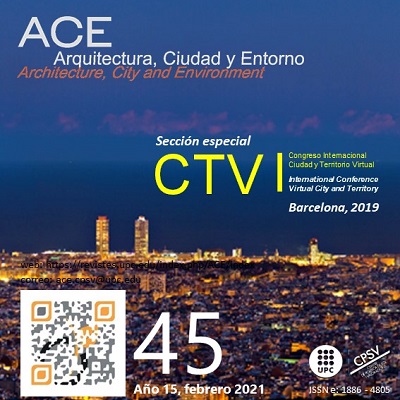The City as a Scenario for Teaching Innovation. The Case of the Urban Catwalk in Fashion Education
DOI:
https://doi.org/10.5821/ace.15.45.9486Keywords:
university, city and creativity, teaching innovation, fashion runwayAbstract
Cities constitute a historical and heritage reality of enormous cultural value. As a result of this baggage, they become candidates to provide resources with great educational potential for academic institutions. Through strategic planning, it is feasible to devise actions that combine teaching innovation with the enjoyment of certain urban-architectural elements, so that scenarios are generated, where pedagogy and heritage converge, and both components are reinforced. Starting from some reflections on innovation in Teaching/Learning modalities, the goal of this text is to focus on two types of university-urban synergies called to intensify the referred convergence: secondments and participations. Although the former is relevant, the article focuses on the specific case of the latter, associating them to the specific educational framework of the teaching of Fashion. The methodology structures a comparative study of urban catwalks, considering them as places where a creative exhibition of learning results by students is carried out. To this end, and following a common theoretical model, the following cases are analysed: Antwerp (Eilandje neighborhood), Madrid (Teatro Real, Conde Duque and Matadero), Savannah (Art Museum), Milan (Teatro Vetra), Cannes (Rue d´Antibes), Terrassa (Teatre Alegria), Florence (Via Tornabuoni) and New York (Greenwich Village). All of them are illustrative examples of the successful and original combination of dynamics of pedagogical innovation with the value of the urban-architectural heritage of each site. After the cross-sectional reading of the recent cases, proactive conclusions are drawn, so that they can induce strategies of equivalent value in other cities, and in alternative areas of knowledge.
Downloads
Published
Issue
Section
License
| INTELECTUAL PROTECTION CRITERIA |
At this moment, it is count with the "Oficina Española de Patentes y Marcas", while global protection it is being processed by the World Intelectual Property Organization (OMPI/WIPO). Nevertheless the International Standard Serial Number Office (ISSN) has given the following numbers ISSN: 1886-4805 (electronic version) and 1887-7052 (paper version). All articles will be peer reviewed, using double blind reviewing. |
| COPYRIGHT |
The article contents and their comments are authors exclusive liability, and do not reflect necessarily the journal editor commitee's opinion. All ACE published works are subject to the following licence CC BY-NC-ND 3.0 ES http://creativecommons.org/licenses/by-nc-nd/3.0/es/ It implies that authors do not hold nor retain the copyright without restrictions but only those included in the licence. |


































